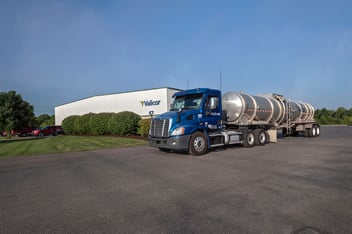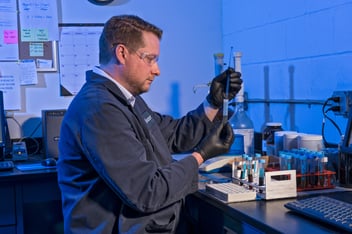A key consideration in assessing solutions to manage complex wastewater streams is to understand the challenge posed by the contaminants relative to the treatment requirements and goals. The source operations from various industry markets such as power, mining, automotive (and durable goods), chemical, refining, etc., each tends to present unique challenges.
Companies like Valicor with extensive CWT capabilities can apply shared solutions. This helps avert having to develop new solutions from scratch every time since the broad experience helps leverage solutions previously generated which can then be refined and optimized for a particular stream.
Some of the common challenges observed in wastewater streams include:
- They are often a combination of wastewater from many different phases of an industrial process, which can involve oily emulsions, dissolved organic and inorganic contaminants, and colloidal composites of all of these.
- Commingled contaminants that require disparate and often incompatible treatment approaches, such as:
-
- Oxyanions — metalloids and non-metals that exist as soluble anionic oxyanions (common examples include arsenic, selenium, and molybdenum) pose unique challenges compared to traditional cationic metals in solution. In cases where metals exist as colloidal oxides, they are well-passivated and non-reactive which makes removal difficult using conventional approaches. That is sometimes the case with titanium, for example.
Additionally, the situation can be further compounded by the presence of constituents such as ammonium, fluoride, and even common ions such as silicates and carbonates. All conspire to make the efficacy of a “one recipe treatment solution” suboptimal at best, and totally unworkable at worst. - Metal ions — metal ions can exist at different oxidation states which makes them either impossible, difficult or easy to remove at common pH setpoints. Not all metals can agree on which pH or reduction potential is best.
- Organic solids — generally includes compounds involving C, H, N, and O, can run the gamut of naturally occurring human and animal/vegetable byproducts to synthetic compounds in soluble, insoluble or colloidal/emulsified forms. The challenge with organics rises when they are also complexed with other constituents or bound to metals and other toxic inorganic constituents, e.g., fluorine.
- Inorganic solids — typically associated with insoluble crystalline salts of sulfate, phosphate, nitrate, chlorides, etc. and the various hydroxy/oxides of the more amorphous variety. These can either be a part of the wastewater or be formed as a consequence of the treatment approach. Not always a welcome consequence, for example, when they create scaling, fouling and materials handling challenges.
- Oxyanions — metalloids and non-metals that exist as soluble anionic oxyanions (common examples include arsenic, selenium, and molybdenum) pose unique challenges compared to traditional cationic metals in solution. In cases where metals exist as colloidal oxides, they are well-passivated and non-reactive which makes removal difficult using conventional approaches. That is sometimes the case with titanium, for example.
- Given the challenges described above, streams often require isolated storage and processing which places robust demands on CWT front-end storage and processing logistics.
- Evolving industries and markets spark new challenges. New products, innovations and solutions that improve our way of life today are often the seed of tomorrow’s challenges as the fate of previously unknown or poorly understood contaminants becomes clearer. In response, effective processes and adaptations to existing solutions are inevitable.
Valicor's complex waste treatment services help customers across the nation to manage their complex waste streams. Our advanced technology and expertise allow us to treat each customer's complex waste stream individually.
Valicor’s team of experts are ready to develop a customized solution just for you. Reach out to us for a quote today.



